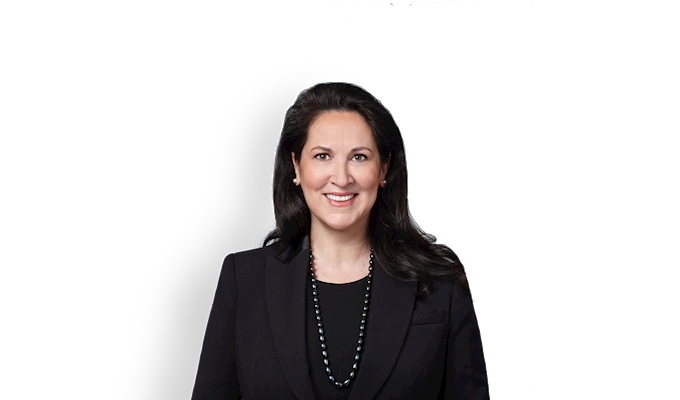The Federal and Québec governments recently announced reforms that open new means of access for becoming a Canadian permanent resident. Despite a unique migratory context due to the pandemic, these measures are a positive development for those interested in settling permanently in Canada. For Canadian employers, these reforms should facilitate the establishment in Canada of workers with in-demand skills.
Express Entry program: Increase in points awarded to francophone and bilingual applicants for permanent residence outside Québec
On October 27, The Honourable Marco E. L. Mendicino, Minister of Immigration, Refugees and Citizenship, announced that more points would now be awarded to francophone and bilingual applicants under the Express Entry program.1
Express Entry is an immigration program for obtaining permanent residency for skilled workers, through which points are awarded to applicants based on their qualifications, studies, etc. By increasing the number of points allotted for language skills in French, or in both of Canada's official languages, the federal government hopes to reach its goal of attracting 4.4 per cent of francophone immigrants to Canada, outside of Québec, by 2023.
In a statement in support of the announcement, Minister Mendocino reiterated the federal government's desire to support the development of francophone communities in Canada:
“Supporting the development of Francophone minority communities outside of Quebec is part of this government’s plan for economic growth and long-term prosperity throughout the country. It is also the right thing to do to help support Francophone communities right across Canada. We will continue to attract Francophone immigrants to make sure that Francophone minority communities flourish.”2
Francophone candidates will see their score increase by 25 points for their language skills, while bilingual candidates will be awarded an additional 50 points under this selection criterion.
This initiative is part of a long-term plan commonly referred to as the “Action Plan for Official Languages – 2018-2023: Investing in our Future.”3 This multi-ministerial plan aims, among other things, to stimulate the growth of bilingualism in Canada and to counter the decline of francophone populations outside Québec.
Of note, this new policy does not apply to Québec, which retains autonomy in immigration matters based on the Canada-Québec Accord.4
While Québec will likely remain the preferred destination for French-speaking individuals seeking to expatriate to Canada, this update to the federal government's selection criteria could redistribute the cards.
It should also be noted that this initiative contrasts with recent policy changes through which the Québec government has tightened its selection criteria for skilled workers in general, notably by requiring more work experience in one of its flagship programs, the Québec experience program.5 Another attempt at reforming the same program was strongly contested in 2019.6
We will carefully monitor the impact of this initiative, which should in any event have a positive effect on the immigration of francophones to Canada.
The Government of Québec introduces three permanent residence immigration pilot programs in health, new technologies and food processing
On October 28, Nadine Girault, Québec’s Minister of Immigration, Francization and Integration, presented a draft regulation that would facilitate permanent residency for certain workers.7 These pilot projects target:
- Orderlies, i.e., nurses’ aides, nursing auxiliaries and other workers in similar roles;
- Workers in artificial intelligence, information technology and visual effects; and,
- Workers in food processing.
With respect to orderlies, the Québec government is trying to fill a glaring gap in the province’s health-care system.8 This shortage of orderlies was made more apparent during the COVID-19 pandemic, forcing a regulatory response.
As for workers in artificial intelligence, Montréal is positioning itself as a global strategic hub in this industry, benefiting from numerous public and private investments as well as the development of a university pole.9 This reform likely aims to support the growth of this sector in Québec by facilitating the arrival of new talent.
It should be noted that each program includes the right of the worker’s spouse to apply for an open work permit, regardless of the level of the National Occupational Classification corresponding to the position offered, the need to have a certain level of French, and the obligation to meet the required minimal settlement funds. Currently, it is anticipated that 550 places will be available through each program.
These projects are likely to come into force in December 2020, in the absence of any major contestation or changes, and should end in January 2026, subject to possible extensions. The three projects are subject to different conditions and we invite you to contact BLG's Business Immigration team for more information on the details applicable to each type of candidate.
1 Government of Canada, “Additional points in Express Entry to help increase Francophone immigration outside Quebec,” Oct. 27, 2020.
2 Government of Canada, “Additional points in Express Entry to help increase Francophone immigration outside Quebec,” Oct. 27, 2020.
3 Canada, "Action Plan for Official Languages - 2018-2023: Investing in our Future," 2018.
4 Government of Canada et Government of Québec, "Canada–Québec Accord relating to Immigration and Temporary Admission of Aliens," Feb. 5, 1991.
5 Québec Immigration Regulation, CQLR c I-0.2.1, r 3, ss 32 and ff; Ministère de l’immigration, de la francisation et de l’intégration, “Changes to the Programme de l’expérience québécoise (PEQ – Québec experience program)” (consulted Oct. 28, 2020).
6 Christine Beltempo and Frédéric Desmarais, "La réforme réformée : Le programme de l’expérience québécoise à risque," Ordre des conseillers en ressources humaines agrées, Dec. 18, 2019 (in French).
7 Draft Regulation, "Regulation to make three permanent immigration pilot programs," Quebec Gazette, Part 2, at 4592 and ff, 2020.
8 Isabelle Porter, "Pénurie persistance de préposés aux bénéficiaires," Le Devoir [Québec], Jan. 18, 2019, (in French).
9 Investissement Québec, "Montréal, centre mondial de l’intelligence artificielle," (consulted Oct. 28, 2020) (in French).




